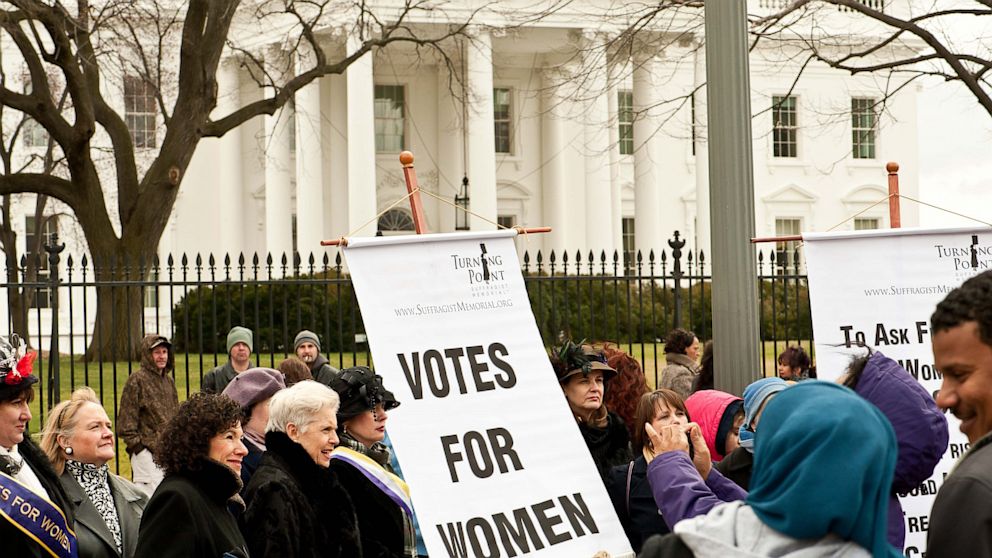Does Women's Equality Day Really Mean Anything?
Women still face discrimination and unequal opportunities.

Aug. 26, 2013— -- Today is Women’s Equality Day. Established in the 1970s, the day is meant to commemorate the certification of the 19th Amendment, which gave women in the United States the right to vote.
It’s generated opinion pieces in national media outlets like the Huffington Post and local papers like the Milwaukee Wisconsin Journal Sentinel. The writers, usually women’s rights advocates, say it’s a time to remember how far women have come and how much is left to be done.
But does it matter?
August 26 has been Women’s Equality Day for years, and there’s still a massive wage gap between the sexes. Paid maternity leave is still not the law of the land, and the number of women in Congress is still alarmingly and disproportionately low.
Women still face obstacles when it comes to accessing health care -- obstacles that aren’t going away. If anything, they’re getting higher and more numerous.
Many racial minorities, not just women, continue to face barriers to voting.
And top colleges are still failing to adequately connect with high-achieving poor students, particularly when it comes to getting bright girls into fields like science and engineering.
So having a day when activist organizations call on people support might sound good on the surface, but does it have any sort of real impact?
“I do think so,” said Elisabeth MacNamara, president of the League of Women Voters of the United States, who wrote that praising piece in the Huffington Post. “It focuses attention on the progress we’ve made for sure and gives us an opportunity to focus on the work that still needs to be done.”
The League of Women Voters has used the day to remind people to vote and fight voter suppression, MacNamara told Fusion.
The designated day is a reminder to people who aren’t regularly invested in those issues.
“We have to keep working,” she said,
Cynthia Harrison, an associate professor of History, Women’s Studies, and Public Policy at George Washington University, is a little more skeptical.
“I don’t know how we could possibly gauge it,” she said of whether a special day makes a difference.
While she agrees with MacNamara that it can serve as a chance to get the word out that there is still work to do, there’s also the potential for it to be used negatively.
“I think in some respects it could be used as a dodge,” Harrison said, likening it to Ronald Reagan’s nomination of Sandra Day O’Connor to the Supreme Court and subsequent dismissal of his feminist critics by pointing to her as a counterargument.
“I think especially lately there has not been much notice taken” of women’s remaining social and fiscal obstacles, she said.
To have an impact, Women’s Equality Day will have to encourage women to vote and learn about the platforms of the different candidates.
“The focus has to be on turning out women voters who are going to vote for legislators who have women’s interests at heart,” Harrison said.
So far, it’s been slow going.
“I’m not sure if I should place an exclamation point or a question mark at the end of my greeting” for Women’s Equality Day, one activist wrote on Policy Mic’s blog Monday. “Is it appropriate to proclaim women’s equality if we still have miles to go?”